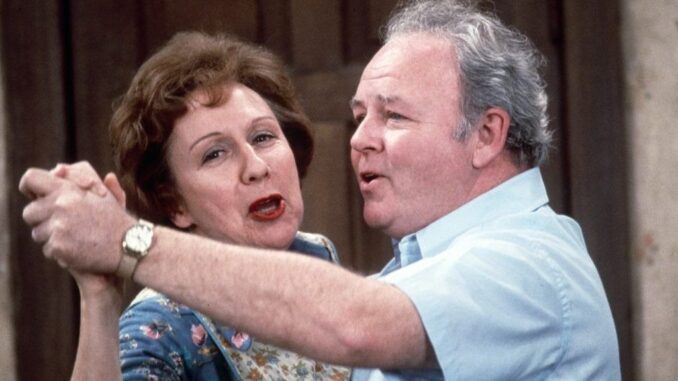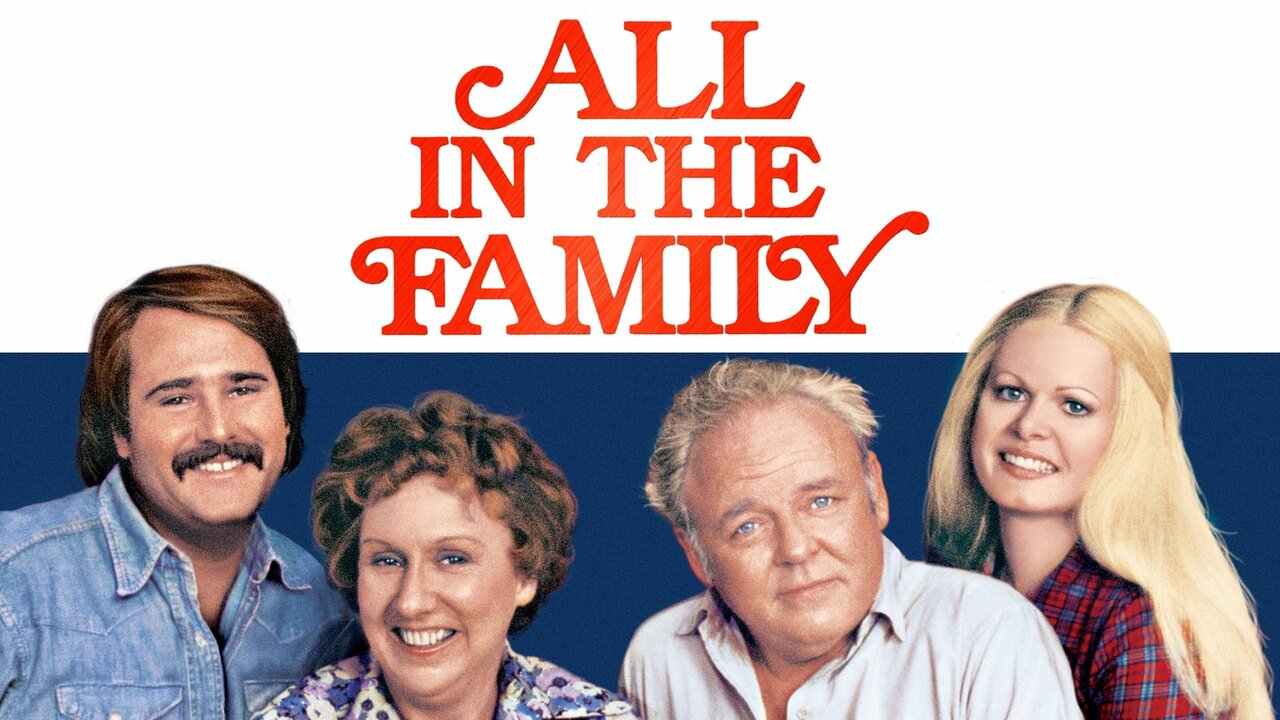
‘All in the Family’ Cast: A Look Back at the Bunkers and How They Changed Television
Introduction: A Revolutionary Show
When All in the Family first aired on January 12, 1971, it was unlike anything television had seen before. Created by Norman Lear, the groundbreaking sitcom brought social issues, political discourse, and controversial topics right into the living rooms of America. The series followed the life of Archie Bunker, a loud-mouthed, blue-collar man whose unapologetic views often led to conflict with his family. At the time, many considered the show’s rawness and willingness to tackle topics like racism, gender roles, and sexual politics as revolutionary for network TV.
But beyond its impactful storytelling, All in the Family was anchored by its unforgettable cast, who each played a pivotal role in making the show a cultural landmark. Let’s take a closer look at the main actors of the Bunker family and explore how they forever changed television.
1. Carroll O’Connor as Archie Bunker: TV’s First Antihero
Archie Bunker, played by Carroll O’Connor, was the central character of All in the Family, and his portrayal became a defining moment in television history. Archie was a working-class man with outdated views on race, gender, and politics. However, his character wasn’t just a stereotype – his complexity and humanity brought a level of depth that made audiences both laugh and cringe.
Carroll O’Connor: The Legacy of Archie Bunker
O’Connor’s portrayal of Archie earned him four Emmy Awards and made him an icon in the entertainment world. While Archie’s views were often offensive, O’Connor’s performance never let the audience forget that he was more than just a bigot – he was a flawed human being who could still be loved, and that was part of the brilliance of the show.
After All in the Family, O’Connor continued to enjoy success, particularly through his role in the In the Heat of the Night series, where he played Bill Gillespie, the chief of police in a racially tense Southern town. O’Connor’s post-“Bunker” career cemented his status as one of television’s great actors.
2. Jean Stapleton as Edith Bunker: The Heart of the Show
While Carroll O’Connor’s Archie was brash and abrasive, Jean Stapleton’s Edith Bunker was the perfect foil. Edith was loving, patient, and often the emotional anchor of the family. She could see the good in Archie, even when his behavior was at its worst, and her signature line, “Oh, Archie,” became iconic.
Jean Stapleton: More Than Just Edith Bunker
Jean Stapleton’s performance as Edith won her two Emmy Awards and made her a beloved figure in American households. Despite the role’s comedic nature, Stapleton brought a depth to Edith that highlighted the character’s wisdom and understanding of the world around her. After All in the Family, Stapleton continued her career, making guest appearances on various shows, including The West Wing, and also remained active in theater.
Even after her death in 2013, Jean Stapleton’s portrayal of Edith remains one of the most iconic TV characters of all time. Her ability to blend humor with heart ensured that Edith was not just a sidekick to Archie, but a character in her own right, who made a lasting impact on the show’s cultural legacy.
3. Sally Struthers as Gloria Bunker: The Feminist Trailblazer
As Gloria Bunker, Archie and Edith’s daughter, Sally Struthers brought a fresh perspective to the series. Gloria’s character was both progressive and naïve at times, often butting heads with her father, Archie, over issues like feminism, civil rights, and generational gaps. As a young woman struggling to find her place in a rapidly changing world, Gloria embodied the counterculture of the late 60s and early 70s.
Sally Struthers: A Life Beyond ‘All in the Family’
Sally Struthers became a star because of her comedic timing and her ability to portray Gloria’s youthful innocence and earnestness. After leaving the show, Struthers became known for her voice acting work, particularly as Betty Rubble in The Flintstones animated series and later in Dinosaurs. She also became a spokesperson for various charitable organizations, including campaigns for children’s welfare.
While she continued to act in film and television, Struthers will always be remembered for her role as Gloria, one of the first feminist characters on television.
4. Rob Reiner as Michael “Meathead” Stivic: The Voice of Reason
In a role that seemed perfectly tailored to his comedic talents, Rob Reiner played Michael “Meathead” Stivic, Gloria’s husband, who served as Archie’s progressive, college-educated son-in-law. Meathead was often the voice of reason in the show, constantly challenging Archie’s outdated views with humor and wit.
Rob Reiner: Director, Producer, and Political Activist
After leaving All in the Family, Rob Reiner went on to have a highly successful career as a director and producer. His most notable works include This Is Spinal Tap, The Princess Bride, When Harry Met Sally, and A Few Good Men. Reiner’s shift from acting to directing showed his versatility and storytelling ability, and he quickly became one of Hollywood’s most respected filmmakers.
In addition to his film career, Reiner has been an outspoken political activist, advocating for progressive causes and running his own political action committee. He remains a beloved figure in the entertainment world, and his role as “Meathead” will always be a part of his legacy.
The Cultural Impact of ‘All in the Family’
All in the Family was revolutionary for its time. It pushed boundaries by addressing controversial topics that were rarely discussed on television, including racism, abortion, women’s rights, and the Vietnam War. The show was unapologetically bold, using humor to deal with complex issues and making the audience think as much as they laughed.
The Bunkers’ often volatile family dynamic highlighted the generational and ideological divides of the era. While Archie Bunker was a representation of the older, more conservative mindset, characters like Gloria and Meathead embodied the more liberal and progressive youth culture of the 1960s and 70s. The show successfully explored these tensions in a way that was both humorous and thought-provoking, and it paved the way for future sitcoms that weren’t afraid to tackle tough social issues.
The Lasting Legacy of ‘All in the Family’
All in the Family not only changed the landscape of television but also influenced how audiences interacted with sitcoms. The show set the stage for later shows like The Jeffersons, Maude, and One Day at a Time, which continued to address social issues through comedy. More importantly, it proved that television could be a powerful tool for social change and conversation.
The Bunker family became a household name, and their stories are still relevant today, thanks to the enduring influence of All in the Family. The show gave us a glimpse into the complexity of family dynamics, and it challenged viewers to confront the uncomfortable truths about society and their own beliefs.
Conclusion: Remembering the Bunkers
The cast of All in the Family is forever etched in the history of television. Each actor brought depth, humor, and truth to their respective characters, creating a family that not only entertained but also made viewers think deeply about social issues. As we remember Carroll O’Connor, Jean Stapleton, Sally Struthers, and Rob Reiner, we recognize that their contributions to All in the Family went beyond their roles—they changed television, and in doing so, they changed the world.
FAQs
1. Why was ‘All in the Family’ considered so revolutionary?
All in the Family was groundbreaking for its time because it tackled controversial issues like racism, gender equality, and political divisions in a way that was both comedic and serious, opening doors for more socially conscious television.
2. Did the cast members of ‘All in the Family’ win any awards?
Yes, the cast members of All in the Family, especially Carroll O’Connor and Jean Stapleton, received numerous accolades, including Emmy Awards for their performances.
3. What was the impact of ‘All in the Family’ on other TV shows?
The success of All in the Family led to the creation of other socially conscious sitcoms, such as The Jeffersons, and helped redefine the boundaries of comedy on TV.
4. Is ‘All in the Family’ still relevant today?
Yes, many of the issues explored in All in the Family, such as racism and generational conflict, remain relevant today, making the show a timeless classic.
5. Where can I watch ‘All in the Family’ now?
